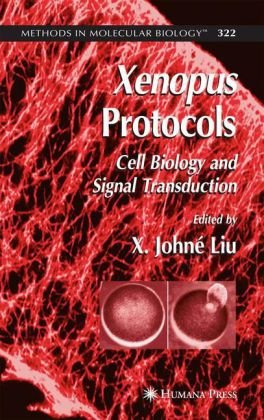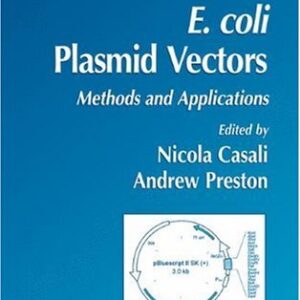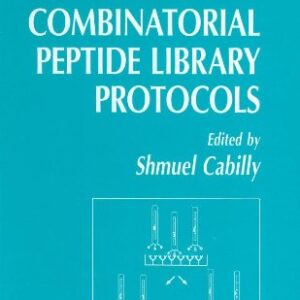Although Xenopus oocytes are very hardy and robust in terms of experimentation and offer unusually simple and inexpensive opportunities for the delivery of mRNA to the cytoplasm and DNA to the nucleus, they are underutilized as an experimental model. In Xenopus Protocols: Cell Biology and Signal Transduction, hands-on researchers describe standard and cutting-edge techniques for using Xenopus oocytes and oocyte/egg extracts to reconstitute biological and cellular processes. These readily reproducible methods take advantage of the oocyte’s impressive protein abundance (for example, 50-70 ng catalytic subunit of PKA per oocyte), its striking protein translation capacity (200-400 ng protein/oocyte per day), and its breathtaking possibilities for the assembly of infectious viral particles by single-cell injection of multiple RNAs. The authors focus on the versatility of frog oocytes and egg extracts in cell biology and signal transduction and cover all the major uses of oocytes/extracts as experimental models. The protocols follow the successful Methods in Molecular Biology? series format, each offering step-by-step laboratory instructions, an introduction outlining the principles behind the technique, lists of the necessary equipment and reagents, and tips on troubleshooting and avoiding known pitfalls.
Comprehensive and highly practical, Xenopus Protocols: Cell Biology and Signal Transduction serves perfectly to instruct novices in the use of Xenopus oocytes/extracts, as well as seasoned investigators interested in developing novel models and uses.
Biology
{PDF} Xenopus Protocols: Cell Biology and Signal Transduction Steven L. Klein, Daniela S. Gerhard, Lukas Wagner, Paul Richardson (auth.), X. John? Liu (eds.)
$19.99






Reviews
There are no reviews yet.